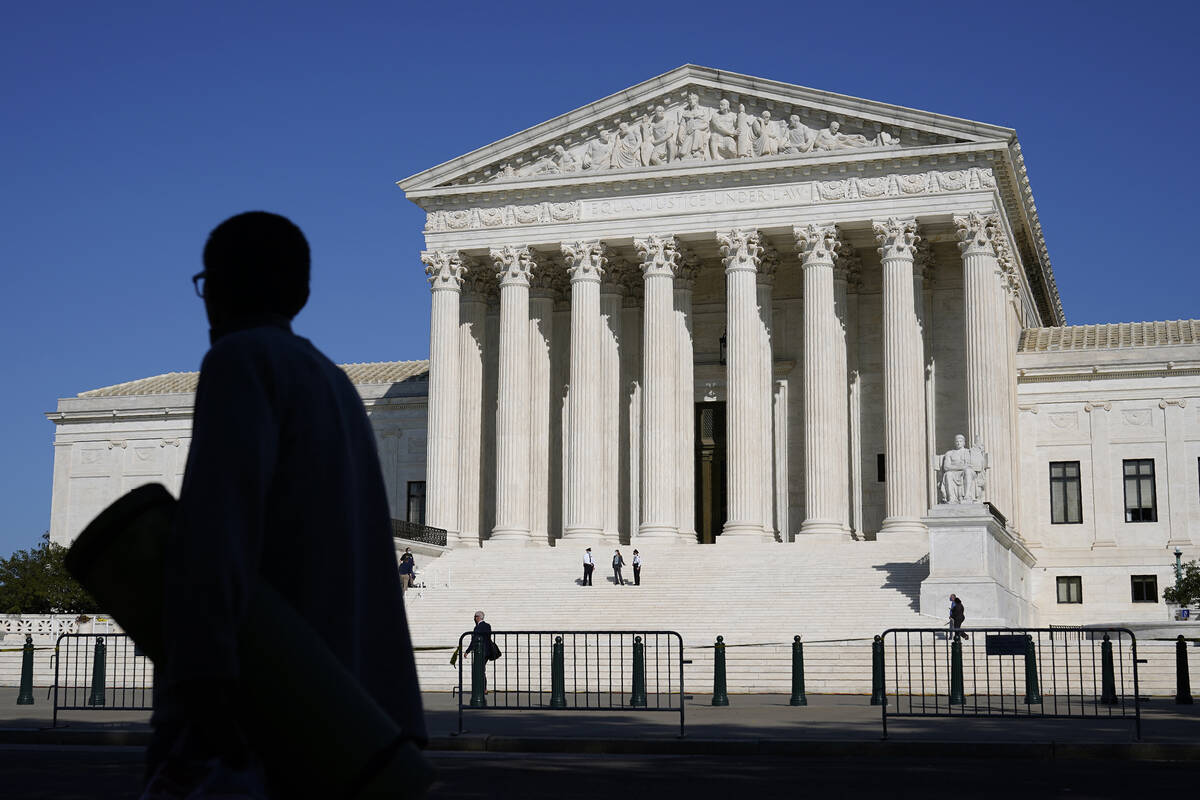RUBEN NAVARRETTE JR.: Americans debate affirmative action; few understand it
As a Mexican American, I live on a different planet than conservative white men. We don’t have the same experiences or see the world the same way.
For instance, when the subject of race comes up, many of them have a knack for saying the wrong thing.
Take conservative radio host Hugh Hewitt, who recently described affirmative action as “admitting people to college based upon their racial identity.”
Baloney. No one is admitted to college based solely on race. That’s one of several factors that can be considered, the U.S. Supreme Court has said more than once.
Later, Hewitt doubled down on glib by claiming that those who support affirmative action “want to count by race and limit the upward mobility of Asian Americans via the imposition of caps on their admission.”
More baloney. At the end of this month, the Supreme Court will hear arguments in the case Students for Fair Admissions v. President and Fellows of Harvard College. Plaintiffs accuse Harvard of discriminating against Asians. If Harvard is trying to keep Asians out of its student body, it’s doing a lousy job. Asians made up 25.9 percent of the class admitted in 2021.
Two lower federal courts have ruled in Harvard’s favor, and the numerous amicus briefs submitted on the university’s behalf include one from the Asian American Legal Defense and Education Fund. The AALDEF claims that the plaintiffs are deploying “harmful stereotypes of the Asian American community” and that race-neutral admissions “ultimately benefits white applicants.”
More than six decades after John F. Kennedy signed Executive Order 10925 — requiring that U.S. government contractors “take affirmative action to ensure that applicants are employed, and that employees are treated during employment, without regard to their race, creed, color, or national origin” — Americans are still debating the policy.
In three different instances, the Supreme Court has given colleges and universities the green light to take the race and ethnicity of applicants into account as one of several factors during the admissions process.
In 1978, in Regents of the University of California v. Bakke, the justices struck down a set-aside program at U.C. Davis Medical School but allowed race to be considered as one of several factors. In 2003, in Grutter v. Bollinger, the court upheld the admissions policy at the University of Michigan Law School, saying that the school had a compelling interest to achieve a “critical mass” of students of color and that a race-based approach was permissible as long as other factors were considered. In 2016, in Fisher v. University of Texas, the justices upheld a lower-court ruling that found that the use of race in the undergraduate admissions policy of the University of Texas at Austin was constitutional.
While the Supreme Court was recommitting itself to affirmative action, I was becoming disillusioned with it. When I first heard the phrase, I was a 17-year-old high school senior. I was also a Mexican American with perfect grades in advanced placement courses who was accepted by five elite universities, including Harvard, only to have white friends whose grades weren’t as good tell me that I wouldn’t have been admitted if I “hadn’t been Mexican.”
For more than a decade, I stood by affirmative action. These days, not so much. It’s not because I agree with the claim of many conservative white men that the policy amounts to “reverse discrimination” and that they are victims of a massive conspiracy to oppress them.
That’s absurd. Today, white men still occupy top positions in politics, media, banking, academia, entertainment and other industries. In 2021, 86 percent of CEOs of Fortune 500 companies were white males, according to Richard L. Zweigenhaft and G. William Domhoff, professors emeritus and co-authors of “Diversity In The Power Elite: Ironies and Unfulfilled Promises.”
I should be so oppressed. No, the reason I want out is because I have come to believe that affirmative action — when implemented too aggressively — hurts intended beneficiaries by lowering standards, stigmatizing high achievers and masking inequalities at the K-12 level.
There’s an argument you don’t hear from opponents of affirmative action. Most of them are concerned only with what they see as an unjust scheme that holds them back.
It’s a ridiculous claim based on fear and fiction. Sadly, it may be good enough to satisfy a 6-3 conservative majority on the high court that appears willing to brush aside the facts and the law and let ideology carry the day.
Ruben Navarrette’s email address is crimscribe@icloud.com. His podcast, “Ruben in the Center,” is available through every podcast app.






















